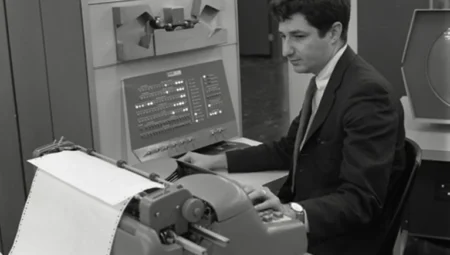Beauty standards constantly shift and change with the current times, it is constantly evolving and nobody can seem to catch up or so we thought. With the rise of cosmetic and plastic surgeries, it is becoming more accessible for individuals to gain their dream face or body with exception of going under the knife. There is a slight difference between plastic surgery and cosmetic surgery.
According to the American Board of Cosmetic Surgery, plastic surgery focuses on fixing defects and reconstructing it in order for it to look normal and to function normally (1). While cosmetic surgery primarily focuses on elevating a person’s physical appearance through invasive procedures. Cosmetic treatments are divided into two segments- surgical and non-surgical. Surgical procedures include breasts augmentations (breasts enlargement) and rhinoplasty (nose job) while non-surgical include botulinum toxin and any type of fillers.
In Türkiye it is quite common to know or see someone who has undergone a nose job or lip fillers, since Türkiye is one of the most popular destinations among not only the locals, but also tourists to get a plastic surgery treatment. This is due to the fact that Türkiye’s labour costs are a lot more affordable compared to Europe while still maintaining a high level of quality. Additionally, Türkiye has one of the most well-favoured health tourism locations placing a second in Europe in plastic surgeons (2). We can see this culture of normalising cosmetic surgery and improving one’s physical appearance through it, accelerating by desirability especially among the women in Türkiye. Women are much more perceptible to this notion due to the constant marketing and advertisements targeted to them. We will get into why the relation with this later on in the paper.
Social Media’s Effect
Plastic or cosmetic surgery has gained a lot of attraction and interest throughout the younger generation even with the stigmatization surrounding it, due to its popularity it is steadily becoming normalized. The number one main factor that has made cosmetic surgeries gain the most relevance in these previous years is due to the rise of social media and advertising within these apps. According to the website (3) SimilarWeb, the top three most popular app in Türkiye are TikTok, Instagram and Twitter respectively. This makes a lot of sense as the first two social media apps are videos and photos sharing platform making it easier to spread their experiences and thoughts to a wider audience easily, especially if you have a big following. Even though, some part of Türkiye is conservative the plastic and cosmetic surgery industry is rapidly increasing in relevance. This can be seen from the amount of beauty clinics and the amount of people that regularly get nose jobs or lip fillers.
Social media platforms are a basis for communications in today’s digital world especially when it comes to promotion of lifestyle like trendy fashion and specifically beauty when it comes to women. Influencers today get paid a ludicrous amount of money to promote an advertisement and users trust the authenticity of these ads especially if it comes from an influencer with a lot of followers. They focus a lot on beautifying themselves and since platforms like Instagram are visual based, an aesthetic of a person is very important. One’s physical appearance and attractiveness play a crucial role on staying relevant on these apps and without the validation individuals might feel the need to alter certain aspects of themselves as to conform to the beauty standards (4). Even though, those beauty standards are constructed from popular media images that are digitally edited photos which is impossible to attain in the fourth dimensions or the real world (5).
Instagram and Snapchat specifically include filters that adjust your facial features and this has definitely influenced the growth on the cosmetic surgery field (6). An example of this effect can be seen form the psychological phenomena called “Snapchat Dysmorphia”, where patients show their filtered selfies to their surgeons to illustrate their desired features (6). These variation of applications like FaceTune and Photoshop let the user edit their imperfections like wrinkles or pimples and erase them which can lead to a distortion of the face or another mental disorder called the Body Dysphoria Disorder (BDD). While social media does not directly cause BDD it an individual it can definitely intensify the symptoms (8). With BDD, the longer people on social media it can trigger obsessive thoughts about one’s physical appearance or having compulsive actions as well perceiving their own flaws about themselves and wondering what they can do to “fix” their flaws. Advertisements and marketing in social media apps convince the audience but especial young girls that every imperfection they find is a flaw that hinders them from being truly happy, feeding into consumerism and a women’s insecurity (5).
Feminist Perspective
Women especially are a lot more perceptible to this notion of beautifying themselves to an extent of physical change because it is what society expects of them, unfortunately women are taught their inherent value lies within their physical appearance. This perception is perpetuated by the patriarchy as a women’s body and looks is scrutinized the moment we are born and criticise by society that most of the time women don’t realise how internalised it is. The Objectification Theory by Fredrickson and Roberts explains this as how culture and society has contributed a lot in the notion of women being sexually objectified so that with time women have assimilated to the internalisation of an observer who is only focused on their physical self (9). This creates an environment or a social norm where women are made to be hyper-aware of their appearance and cause increase anxiety as women are forced to look a certain way in order to appear acceptable to others to fit in, in social groups. Which can cause them to want to alter their looks through several solutions which includes cosmetic surgery (9). Social media increases these idolised body types especially pictured-based platforms that can be damaging to an individual’s self-image and psychosocial functioning like low self-esteem and an increase of anxiety and depression (4).
One of the mainstream examples of this unrealistic beauty standard that is so normalised is the unachievable ‘hourglass’ figure (10). It is now having a resurgence of popularity with the younger generation through a surgical procedure called a Brazilian Butt Lift also known as BBL which transplant fat from another part of the body and inject it in the buttocks area, giving to a large behind and a small waist (11). This is also further encouraged by public figures like the Kardashians who have popularised this body type. Social media has certainly played a role as studies have shown that a lot of younger girls (16 years old or over) are more inclined to do plastic surgery at an early stage even though there are a lot more risks involve because their bodies are not yet fully developed. Due to the accessibility and how affordable cosmetic surgery has become a lot more younger girls are considering it which showcases the rather rigid obligations society has aimed at girls and how far they would go to meet those standards (10).
At the centre of the feminist point of view is the ideology that gender socialization forms our behaviour. Expanding on that perspective indicates that undergoing modification through medical intervention involvement could be based on the culturally manufactured norms of a women’s beauty that shape our self-esteem and mould us how to act and behave (5). An example of this internalisation is found when an individual has a substantial interest in physical appearance and embody mass media messages of beauty have a much more supportive attitude towards cosmetic surgery, due to body dissatisfaction (4).
Studies have also noted a connection between the duration of time occupied on social media and body dissatisfaction. These beauty norms that is perpetuated by social media could be seen from the advertisements that is shown through directly or indirectly from beauty clinics or through an influencer promotion (7). The notion that the beauty standards is somehow obtainable through plastic surgery is in a sense problematic since the idealised beauty standard usually depictures Eurocentric feature combinations such as a sharp nose. By praising the women who undergo cosmetic surgery under the name of feminism and not dissecting the root of the problem it completely dissolves the societal and systematic force that has impacted those cosmetic surgeries.
The beauty standard is impossible to obtain as it is always changing and always supported by the patriarchy as an act to police women and what they should and shouldn’t look like. While the choice is definitely entirely upon the women themselves there should also be a critical look and introspection on why we deem cosmetic surgery necessary to attain a level of beauty and whether it is for ourselves or so that others are more acceptable to a women’s role when they are only pretty? While these things may overlap it is important to analyse why it is so entrenched in us and society and whether it is worth changing our body and faces towards an Eurocentric features will truly leave us satisfied.
In order to gain a feminist point of view an individual must actively criticize the patriarchal system at play and why women are pressured to choose the decisions they do. But the institutions built are bigger than women and due to interconnecting oppressive beliefs these signs of repression are aftereffect established within the root of society. There is no correct answer, however examining the influences that is presented to us is essential.
Lubna Khadijah Binti Adnan
Instagram:lubnakja
References
- American Board of Cosmetic Surgery. (2022, February 01). Cosmetic surgery vs plastic surgery: Cosmetic vs plastic surgeons. Retrieved January 18, 2023, from https://www.americanboardcosmeticsurgery.org/patient-resources/cosmetic-surgery-vs-plastic-surgery/
- Doctor Edem, Obesity Clinic. (2022, December 05). Why is surgery in Turkey so cheap? Retrieved January 18, 2023, from https://www.drhasanerdem.com/en/why-is-surgery-in-turkey-so-cheap/
- Top social apps ranking – most popular apps in United States – similarweb. (2023, January 15). Retrieved January 17, 2023, from https://www.similarweb.com/apps/top/google/store-rank/us/social/top-free/
- Walker, C. E., Krumhuber, E. G., Dayan, S., & Furnham, A. (2019). Effects of social media use on desire for cosmetic surgery among young women. Current Psychology, 40(7), 3355-3364. doi:10.1007/s12144-019-00282
- Dingman, S., Melilli Otte, M. E., & Foster, C. (2012). Cosmetic surgery: Feminist perspectives. Women & Therapy, 35(3-4), 181-192. doi:10.1080/02703149.2012.684536
- Reilly, M., & Parsa, K. (2019, September 17). Social media and the rising trend of cosmetic surgery. Retrieved January 17, 2023, from https://www.psychologytoday.com/us/blog/dissecting-plastic-surgery/201909/social-media-and-the-rising-trend-cosmetic-surgery
- Arab, K., Barasain, O., Altaweel, A., Alkhayyal, J., Alshiha, L., Barasain, R., . . . Alshaalan, H. (2019). Influence of social media on the decision to undergo a cosmetic procedure. Plastic and Reconstructive Surgery – Global Open, 7(8). doi:10.1097/gox.0000000000002333
- Karel, R. (2018). ‘snapchat dysmorphia’ identified as new variant of body dysmorphia. Psychiatric News, 53(21). doi:10.1176/appi.pn.2018.11a11
- Fredrickson, B.L., & Roberts, T.A. (1997). Objectification Theory: Toward Understanding Women’s Lived Experiences and Mental Health Risks. Psychology of Women , 21 ,173 – 206. doi: 10.1111/j.1471-6402.1997.tb00108.x
- Michailidou, M. (2019, January 04). Psychological and sociological aspects of cosmetic surgery as a risky behaviour. Retrieved January 17, 2023, from https://www.academia.edu/38089121/Psychological_and_Sociological_Aspects_of_Cosmetic_Surgery_as_a_Risky_Behaviour
- Noble, A., & Segal, L. (2022, September 23). Everything you need to know about Brazilian butt lifts. Retrieved January 17, 2023, from https://www.harpersbazaar.com/beauty/skin-care/a28170595/what-is-brazilian-butt-lift/





